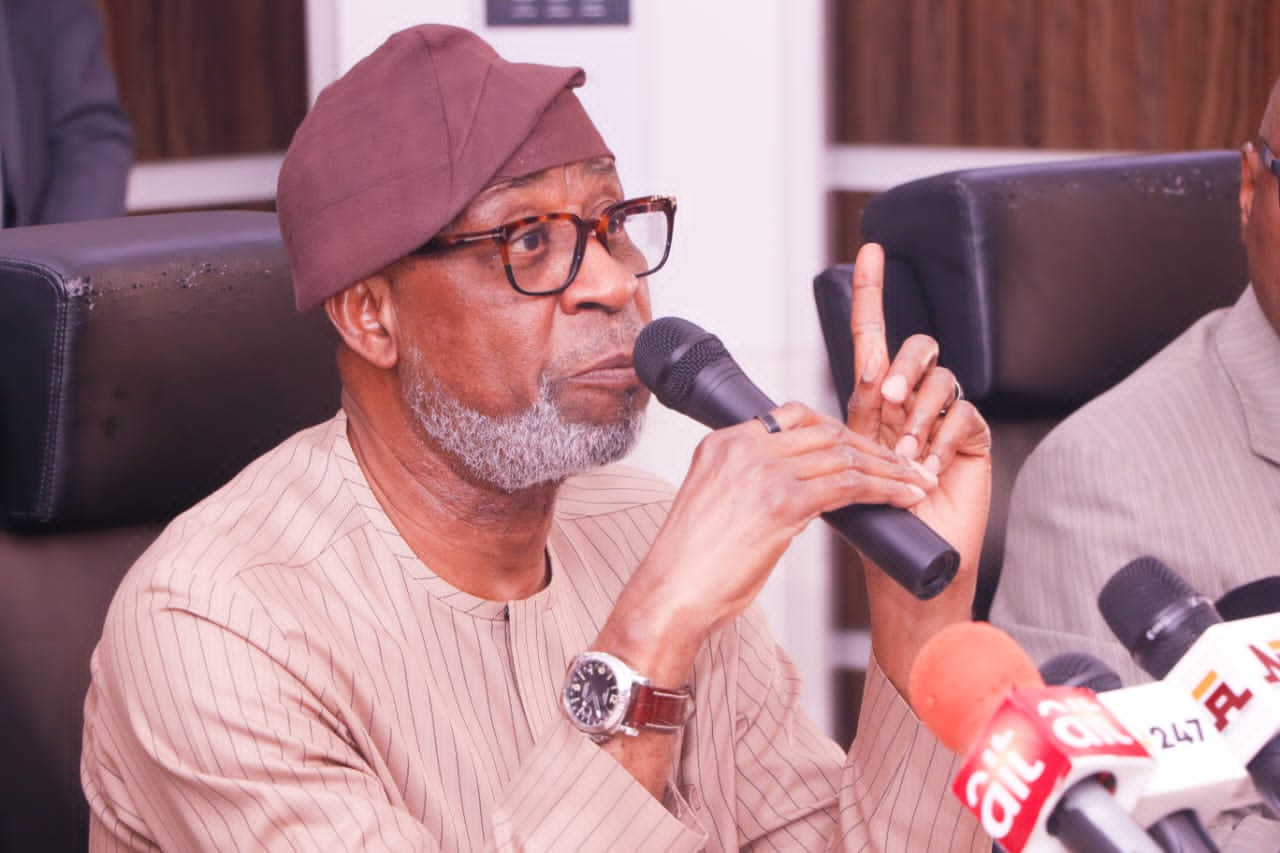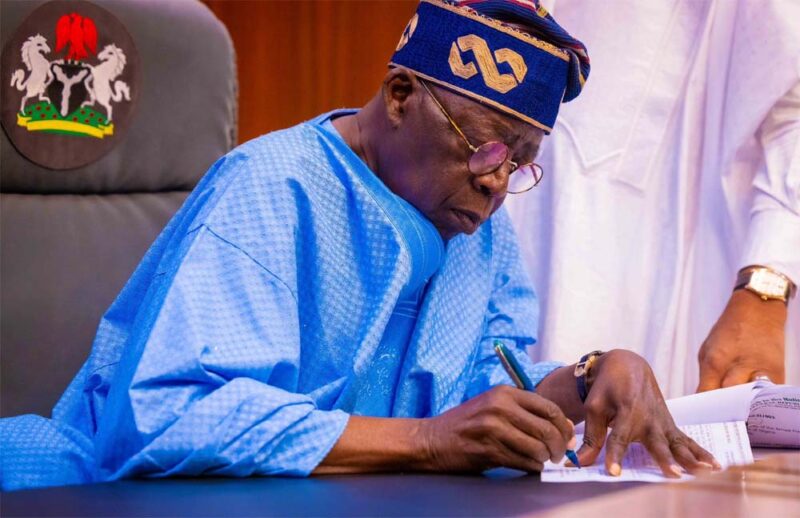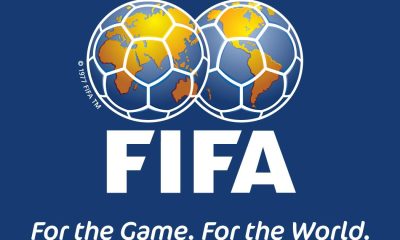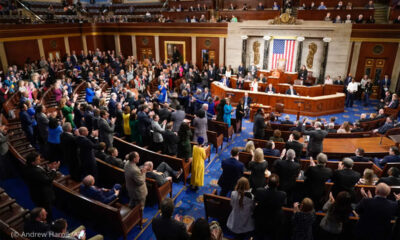News
Nigeria’s N993.38bn imports from Russia at risk over war

The value of Russia’s imports to Nigeria over 12 months period is estimated at N993.38bn, data from the National Bureau of Statistics have shown.
Specifically, the NBS statistics put the value of imports from Russia between the third quarter of 2020 and the corresponding period in 2021 at N993.38bn.
Russia is among Nigeria’s top 10 import trade partners between the third quarter of 2020 and the corresponding period in 2021. However, the N993.38bn trade is at risk as the Russia and Ukraine war persists.
Within the period under review, Nigeria imported four main items from Russia, namely durum wheat, herrings, blue whitings, and mackerel, according to the report.
In Q3 2020, durum wheat worth N46.56bn, mackerel worth N13.76bn, and blue whitings worth N1.57bn were imported from Russia.
During the quarter, Russia was the second leading exporter of durum wheat to Nigeria, the first for mackerel, and the third for blue whitings.
The foreign trade statistics document from the NBS further showed that the total imports from Russia were N154.21bn cumulatively, about 2.87 per cent of Nigeria’s import trade value for the period, with Russia being the seventh import trading partner for Nigeria.
Russia maintained its position as the seventh import trading partner for Nigeria in Q4 2020 with an import trade value of N162.62bn cumulatively, which was 2.74 per cent of the country’s total import trade value.
READ ALSO:
- Lari Williams’ death, colossal loss to Africa creative industry – AGN
- Confusion hits Russian troops as Google disables traffic maps in Ukraine
- Nigerian Parents Storm Russian Embassy In Abuja Over Plight Of Their Children In Ukraine
In Q4 2020, durum wheat worth N62.9bn, mackerel worth N2.27bn, and herrings worth N6.59bn were imported from Russia. Also, Nigeria imported N4.82bn vaccines for human medicine from Russia.
Russia was the top exporter of wheat to Nigeria, the second for herrings, and the third for mackerel in Q4, 2020. It was the fifth import trade partner for vaccines for human medicine.
By Q1 2021, Nigeria imported N15.8bn herrings and N37.20bn durum wheat from Russia. Russia was the top import trading partner for herrings and fourth for wheat.
Nigeria imported N27.23bn blue whitings and N4.18bn mackerel from Russia in Q2 2021. Russia was not mentioned among Nigeria’s top wheat providers for this quarter.
The foreign trade statistics document from the NBS further showed that the import from Russia was N284.36bn cumulatively, which was 4.09 per cent of the total import trade value, with Russia being the fifth import trading partner for Nigeria.
Russia dropped to the sixth import trading partner for Nigeria in Q3 2021 with an import trade value of N339.19bn cumulatively, which was 4.16 per cent of the total import trade value.
In Q3 2021, durum wheat worth N86.75bn and mackerel worth N30.69bn were imported from Russia.
Russia was the top importer of mackerel for Nigeria and second for durum wheat in this quarter.
A total of N232.41bn was spent on durum wheat imports from Russia, and N102.09bn on fishes, such as herrings, blue whitings, and mackerel.
Meanwhile, Nigeria’s import from Ukraine is also at risk as the crisis persists, the Punch has learnt.
According to the United Nations Comtrade Database on International trade in 2020, Nigeria spent $156.08m on imports from Ukraine. The database also showed that import from Russia was $1.24bn for that year.
Nigeria may be forced to shift attention to other countries for the import of commodities like cereals, mineral fuel, oil distillation products, fish, iron and steel, fertilizers, amongst others.
Experts predict inflation, others over import disruptions
Meanwhile, economic analysts and experts have said Nigerians may experience a further rise in inflation over possible disruption in the import of wheat, fish, and other commodities from Russia and Ukraine.
A professor of Economics and Public Policy at the University of Uyo, Akpan Ekpo, said if the conflict between Russia and Ukraine persists, Nigeria’s imports from the two countries may be affected.
He added that this would likely lead to inflation and more hardship for Nigerians.
He said, “If Nigeria can’t import wheat anymore or other products that we import from Russia due to sanctions, it is very likely like the prices of products made from wheat or with wheat will rise in the medium to long term. This of course will increase inflation and create more hardship for the average Nigerian.”
He stressed the need for the country to boost domestic wheat production to meet up with local consumption and export opportunities.
He said, “Definitely, the war will have negative impacts, economically. But with every crisis, there is always an opportunity.
“In this case, the upside for Nigeria is that we exploit this problem by intensifying our local wheat production so that we don’t depend on imports. If we do it rightly, we will not only be able to meet our local demands but we can boost our trade earnings by exporting wheat to countries that were dependent on Russia or Ukraine for their wheat.”
According to the President, Premium Bread-Makers of Nigeria, Emmanuel Onuorah, if the crisis persists, Nigeria may have to turn to other trade partners for the affected commodities.
He said, “Certainly. It will affect the wheat price and its availability. It will affect it because the international price of oil has spiked. You (Russia) can’t export anything because all the export channels are shut. The quantum that is coming from Russia will certainly impact wheat supply to Nigeria, but you know Nigeria does not only buy from Russia, but they also buy from Canada, they buy from the US, and from Brazil.”
Punch
News
FG Seals Plateau Mine After 37 Killed in Toxic Gas Tragedy

FG Seals Plateau Mine After 37 Killed in Toxic Gas Tragedy
The Federal Government has ordered the immediate closure of a mining site in Zuraq, Wase Local Government Area of Plateau State, following the death of 37 miners in a suspected toxic gas exposure.
Minister of Solid Minerals Development, Dr. Dele Alake, directed that the site be sealed to prevent further casualties and pave the way for a comprehensive investigation into the tragedy.
According to local authorities, the victims were exposed to poisonous gaseous emissions in the early hours of Tuesday while working in an underground pit. At least 25 other miners are currently receiving treatment in hospital.
In a statement issued in Abuja by his Special Assistant on Media, Segun Tomori, the minister disclosed that the affected site falls under Mining Licence 11810, operated by Solid Unit Nigeria Limited and owned by Abdullahi Dan-China.
Alake said a high-level investigative team led by the ministry’s Permanent Secretary, Yusuf Yabo, has been deployed to the area to determine both the immediate and remote causes of the disaster and recommend appropriate sanctions. The team comprises mining engineers, environmental compliance officers and experts in artisanal mining operations.
Preliminary findings indicate that the licensed operator allegedly ceded the pit to members of the host community following agitation for economic empowerment. The area, reportedly an abandoned lead site, contained stored minerals capable of emitting sulphuric oxide — a hazardous substance.
Unaware of the danger, villagers engaged in mining activities and were exposed to the toxic fumes.
The minister described the incident as a tragic loss of innocent Nigerians striving to make a living and extended condolences to Plateau State Governor Caleb Mutfwang and families of the victims.
He assured that further updates would be provided as investigations progress, stressing the government’s commitment to enforcing safety and environmental standards in the mining sector.
News
Tinubu Ends NNPCL Oil Revenue Deductions, Orders Full FAAC Remittance

Tinubu Ends NNPCL Oil Revenue Deductions, Orders Full FAAC Remittance
President Bola Ahmed Tinubu has signed a sweeping executive order mandating the direct remittance of all oil and gas revenues into the Federation Account Allocation Committee (Federation Account Allocation Committee), in what is regarded as one of the most significant fiscal reforms since the enactment of the Petroleum Industry Act (PIA).
The directive, announced by presidential spokesperson Bayo Onanuga, requires that all proceeds from royalty oil, tax oil, profit oil, and profit gas be paid in full into the federation account without deductions, before statutory distribution to the federal, state, and local governments.
A central element of the order strips Nigerian National Petroleum Company Limited (NNPCL) of its long-standing 30 per cent management fee on profit oil and profit gas, a deduction that has repeatedly drawn criticism for significantly reducing funds available for sharing among the three tiers of government. The presidency said the practice undermined constitutional revenue entitlements and weakened public finances.
In addition, the president directed that the 30 per cent Frontier Exploration Fund created under the PIA will no longer be retained or managed by NNPCL. Instead, all funds previously set aside under the arrangement will now flow directly into the federation account for FAAC distribution, altering the financing structure for frontier basin exploration activities.
READ ALSO:
- Lagos DSVA Confirms Mirabel Assault Happened in Ogun, Transfers Case
- Arsenal Blow Two-Goal Lead as Bottom Club Wolves Hold Gunners to 2–2 Draw
- Two Killed, Five Injured as Violence Erupts at APC Ward Congress in Ondo
The executive order also affects the handling of gas flare penalties. Payments into the Midstream and Downstream Gas Infrastructure Fund have been suspended, with all proceeds from gas flaring penalties now to be paid directly into the federation account. Officials said existing environmental remediation frameworks already cover such obligations, making the additional fund unnecessary.
According to the presidency, the reforms are aimed at blocking overlapping deductions, including management fees and profit retentions, which collectively divert more than two-thirds of potential oil and gas revenues before they reach FAAC. President Tinubu warned that shrinking net oil revenues pose serious risks to national budgeting, debt sustainability, and overall economic stability.
The president emphasised that the new framework will reposition NNPCL strictly as a commercially driven national oil company, removing quasi-fiscal responsibilities while strengthening transparency, accountability, and oversight in Nigeria’s oil and gas revenue management.
To ensure effective implementation, Tinubu approved the establishment of an inter-ministerial committee comprising senior officials from the economic management team, justice sector, and relevant regulatory agencies. The committee is expected to coordinate legal, financial, and operational steps required for immediate compliance.
The president also signalled plans for a broader review of the Petroleum Industry Act, indicating that further amendments may be pursued to address structural and fiscal concerns raised by stakeholders, particularly state governments.
With oil and gas revenues remaining central to Nigeria’s fiscal health, the executive order represents a decisive move to tighten revenue flows, strengthen FAAC allocations, and reinforce fiscal federalism across the country.
Tinubu Ends NNPCL Oil Revenue Deductions, Orders Full FAAC Remittance
News
BREAKING: Tinubu Assents to 2026 Electoral Act, Sets Stage for 2027 Elections

BREAKING: Tinubu Assents to 2026 Electoral Act, Sets Stage for 2027 Elections
President Bola Ahmed Tinubu has signed the 2026 Electoral Act Amendment into law, setting the legal framework for Nigeria’s 2027 general elections.
The signing ceremony took place on Wednesday at the Presidential Villa in Abuja, with Senate President Godswill Akpabio and Speaker of the House of Representatives Tajudeen Abbas in attendance.
The new law, formally known as the 2026 Electoral Act (Amendment) Bill, was recently harmonised and passed by both chambers of the National Assembly amid debate and opposition from minority lawmakers.
The legislative process leading to the signing saw intense deliberations in both the Senate and the House of Representatives. Lawmakers constituted a joint conference committee to reconcile differences between their respective versions of the bill before transmitting the harmonised document to the President for assent. Earlier, Senate President Akpabio had indicated during an emergency plenary session that the President was expected to sign the amended bill before the end of February. That projection materialised within days.
One of the most significant changes introduced by the 2026 Electoral Act is the reduction of the mandatory notice period for general elections from 360 days to 300 days. Lawmakers explained that the adjustment is intended to give the Independent National Electoral Commission (INEC) greater operational flexibility in planning and conducting elections without breaching statutory timelines.
READ ALSO:
- Korope Drivers Shut Down Lekki–Epe Expressway Over Lagos Ban (Video)
- Kano Closes Entertainment Centres Ahead of Ramadan
- Asari Dokubo Warns Igbo Groups Against Sparking Religious Conflict in Rivers
The issue of electronic transmission of election results generated considerable debate throughout the amendment process. Under the new law, electronic transmission is permitted, while manual collation remains legally recognised, particularly in areas where technical or connectivity challenges arise. INEC retains the authority to issue detailed regulations and guidelines governing how results are transmitted and managed. Supporters argue the compromise reflects operational realities, while critics maintain that the changes may weaken transparency safeguards introduced in previous reforms.
Beyond these headline issues, the amended Act also makes adjustments to party primary timelines, candidate nomination processes, and collation procedures. It includes technical corrections across multiple clauses to improve clarity, reduce ambiguities, and strengthen administrative consistency ahead of the 2027 polls.
With presidential assent now secured, the 2026 Electoral Act becomes the binding legal framework governing presidential, National Assembly, governorship, and state House of Assembly elections. INEC is expected to review and align its regulations and operational guidelines with the new provisions as preparations intensify for the 2027 general elections.
The signing marks a pivotal moment in Nigeria’s democratic process, with political parties, civil society groups, and voters closely watching how the revised electoral framework will shape the next election cycle.
BREAKING: Tinubu Assents to 2026 Electoral Act, Sets Stage for 2027 Elections
-

 News2 days ago
News2 days agoSaudi Arabia Confirms Sighting of Ramadan Crescent, Fasting Begins Wednesday
-

 metro1 day ago
metro1 day agoLagos Woman Shares Ordeal After Alleged Rape, Sparks Nationwide Outcry
-

 metro3 days ago
metro3 days agoUS Freezes Assets of Eight Nigerians Over Boko Haram, ISIL, Cybercrime Links
-

 News1 day ago
News1 day agoRamadan Begins in Nigeria as Sultan Confirms Crescent Sighting
-

 Entertainment3 days ago
Entertainment3 days agoMystery in Lekki: Police Probe Death of Two Nollywood Crew Found Lifeless in Parked Car
-

 metro3 days ago
metro3 days agoTerror in Lagos Traffic: Cutlass Gang Unleashes Mayhem on Mile 12–Ketu Road
-

 Auto3 days ago
Auto3 days agoAppeal Court Ruling on VIO Limited to Abuja, Not Lagos — LASG
-

 metro1 day ago
metro1 day agoSeven Killed in Horrific Crash at Ota Toll Gate













